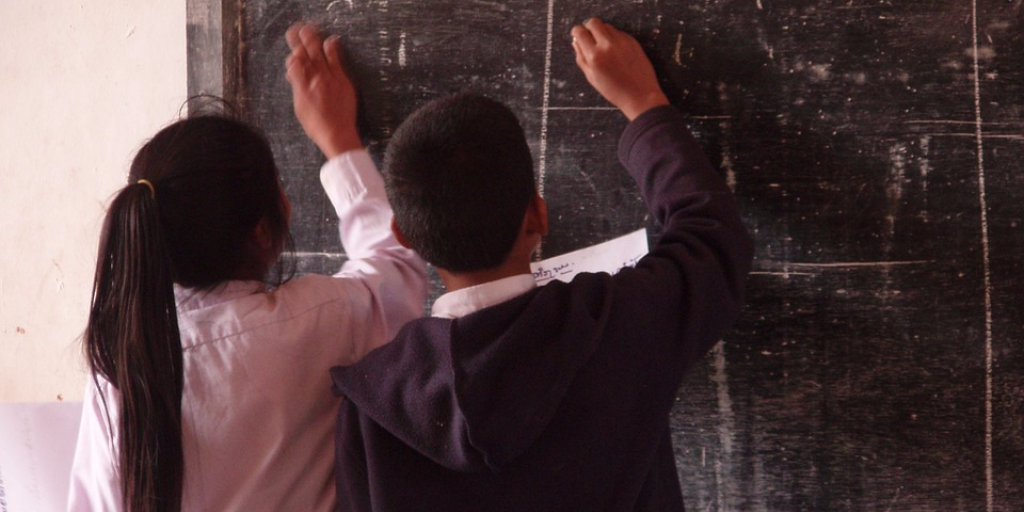China’s notoriously difficult College Entrance Exam has made international headlines in recent years owing to its brain-scrambling difficulty and the enormous pressure it puts on students. If you haven’t already heard of it, you’ll only need to be in China for a short space of time before you begin to hear mentions of the gaokao among your students, whatever their age.
But what exactly is this exam, and why is it so hard? In this post, we explain what the gaokao is, and what it means for both you and your students.
The Exam
The gaokao is an examination taken by Chinese students in their third and final year of high school; grade 10. It is the pinnacle of a Chinese persons’ educational career, and it plays a crucial role in determining if and where they can continue their higher education studies, and ultimately the rest of their professional lives.
The gaokao tests students’ knowledge on a range of subjects, which differ from province to province, but generally include Chinese literature, mathematics and a foreign language (usually English). The questions are recognised for being extremely abstract, and the exam is one of the world’s longest, lasting around 9 hours.
Why it’s important
The gaokao takes place every year during early June and is quite a spectacle. Thousands of students pour onto campus ready to put the many years’ worth of knowledge they’ve acquired since their first day of school to the test and hopefully secure a place in one of their top university choices. The stakes are high; failure to succeed in the exam or meet any of their chosen schools’ requirements means they lose the chance to be accepted into university for the following academic year. If they really want to go to university, they must take the exam again. There is no age limit on the gaokao, so it’s been known for older people to continue trying to pass, even well into their 40’s.
The gaokao really is the be all and end all of the Chinese education system. As previously mentioned, failure to succeed will mean that students cannot go to a school of their choice and instead must find an alternative career or take the exam again. Attending a good school is of utmost importance in China, so it’s unlikely that people will settle for second best. If students do not meet the requirements, they may choose to study abroad instead, where the fees are of course higher, but it is easier for them to get in.
As such, this exam plays an extremely important role in influencing a Chinese person’s career path, with many positions being closed off to people who didn’t graduate from a good university.
Preparations
A Chinese person’s whole educational career is geared towards preparing for the gaokao. Preparation begins from the very first day at school, which is considered every bit as important as their last. Students are put under intense pressure from a young age, and all primary school children are very aware of the fate that lies ahead.
Children as young as 5 are expected to complete mountains of homework each day, and the vast majority attend extra-curricular lessons throughout their school life to help give them an edge against the rest.
What does the exam look like?
The exam itself is recognised around the world for its difficulty. So important (and difficult) is it, that special arrangements are made around the country on exam day to ensure that students don’t encounter any distractions and can focus solely on their exam performance.
Police and emergency services surround schools and put roadblocks in place to ensure that the students can arrive and leave safely, minimizing the risk of anything distracting them. Parents flock around the gates eagerly awaiting their child’s return, praying for a good outcome.
You might be wondering by this point just how difficult this exam could be. Below are a couple of questions to show you just what your students face:
1. If x + y ≥ a, x – y ≤ -1, and the minimum value of z = x + ay = 7, what is a?
- -5
- -5 or 3
- 3
- 5 or -3
2. Four students can choose to participate in a charity event either on Saturday or Sunday. What’s the probability that there is at least one student at both Saturday’s and Sunday’s events?
- 1/8
- 3/8
- 5/8
- 7/8
3. Banks charge processing fees and interest when granting loans. They charge fees because of the services provided, such as account management. The reason for claiming interest is that:
- Banks are a monopoly.
- Bank credit is higher than commercial credit.
- Capital offered by banks is a factor of production.
- Banks are the hub of smooth production.
We’ll give you a chance to test yourself – check your answers and more questions here.
How does this affect foreign teachers?
While the gaokao doesn’t directly affect foreign teachers, it is something that you’ll hear about throughout your teaching placement. Foreign teachers are not tasked with ensuring that students are meeting the right requirements to prepare for their exams, as the Chinese teaching methodology is considered far superior to those we use abroad.
ESL teachers are instead employed to assist with spoken English, something that is largely ignored by the exam and therefore the education system, and to help reinforce the content that students need to know for the English section of the exam. You will not be expected to do anything in particular to help them prepare, though you will undoubtedly be affected by timetable changes and adjustments which stem from a need for students to have extra classes in other subjects.
If you want to experience the Chinese education system first-hand, explore our State School or TEFL Training Programme, and start an adventure in one of 30+ locations across China.



Leave A Comment
You must be logged in to post a comment.